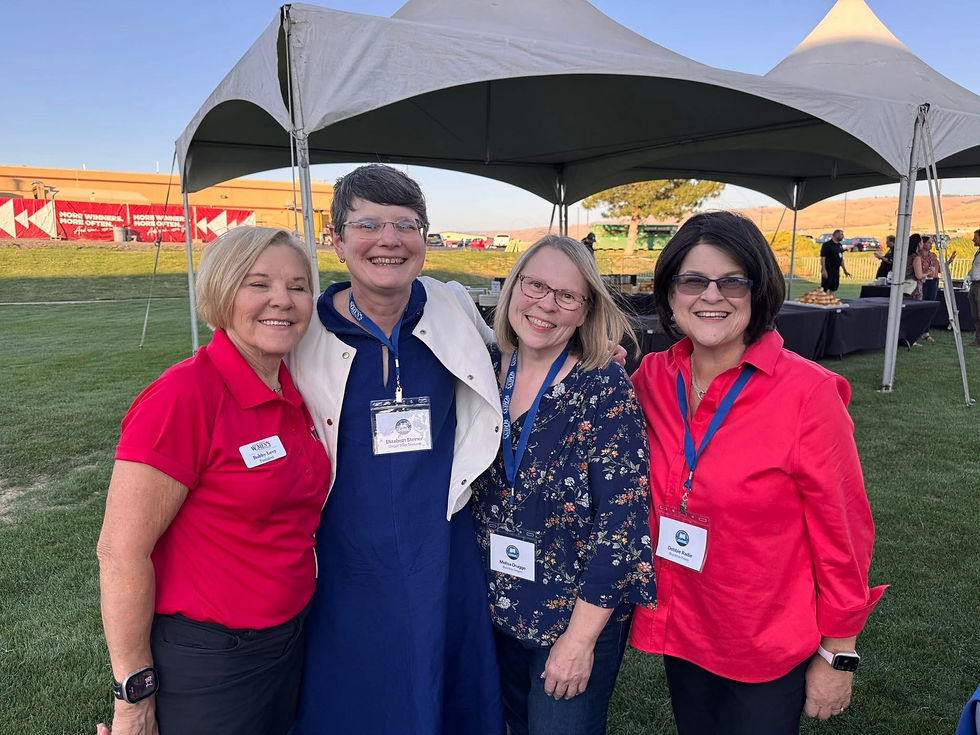Eastern Oregon Economic Summit Highlights Regional Challenges and Opportunities
- H2OEO
- Aug 14, 2025
- 2 min read

Community leaders, elected officials and agriculture experts gathered in July to discuss key regional issues at the annual Eastern Oregon Economic Summit in Pendleton, themed “Deep Roots, Stronger Futures.”
The two-day event started with field and industry tours, including the Energy Tour of Columbia Generating Station, where attendees explored the plant’s operations, safety measures, environmental effects and the role of nuclear energy in future clean energy strategies.
In attendance were state Rep. Bobby Levy (R-Echo), Oregon Treasurer Elizabeth Steiner, Secretary of State Tobias Read, U.S. Rep. Cliff Bentz (R-Ore.) and former National Park Service Director Chuck Sams. Participants could also attend the Wildfire and Forest Management Tour, taking visitors through the Battle Mountain Recovery Site to understand wildfire recovery efforts and proactive forest management. On the Water Tour at Walla Walla Water Basin, participants examined key projects and ongoing initiatives aimed at increasing water availability, supporting ecosystem health and addressing climate change challenges.
“The Eastern Oregon Economic Summit was a powerful reminder of the strength that comes from working together across communities,” said Debbie Radie, executive committee member for Water for Eastern Oregon. “From water to workforce to innovation in agriculture, the conversations were rooted in real challenges – and in real hope for Oregon’s future.”

Radie was on a panel at the summit talking about how Eastern Oregon’s agriculture and food production industry is a cornerstone of the state’s economy, generating billions in value and supporting over 120,000 jobs across all counties. The region’s strategic location, transportation access, and commitment to sustainability position it for growth. While companies are innovating to meet consumer trends and reduce waste, rising costs and regulatory challenges threaten profitability. She emphasized that despite these pressures, the industry continues to invest in rural communities through initiatives like the Families First Childcare Center, which serves as a model of public-private partnership.
Energy was also a key theme throughout the summit, with Friday’s sessions exploring nuclear energy, rural viewpoints and the wider effects of energy development in Eastern Oregon. Additional sessions covered essential regional topics like workforce growth, agriculture, tourism and wildfire prevention.
“In Eastern Oregon, we don’t see production and sustainability as opposing forces; we see them as partners,” said Radie, who spoke on the panel Eastern Oregon Agriculture – Balancing Production, Sustainability and Innovation. “Whether it’s managing limited water resources, investing in next-gen ag tech or building a skilled rural workforce, our success depends on staying innovative while keeping the land healthy for the next generation.”
The summit underscored the importance of collaboration and local knowledge in shaping policy and driving sustainable development across the region.






Comments